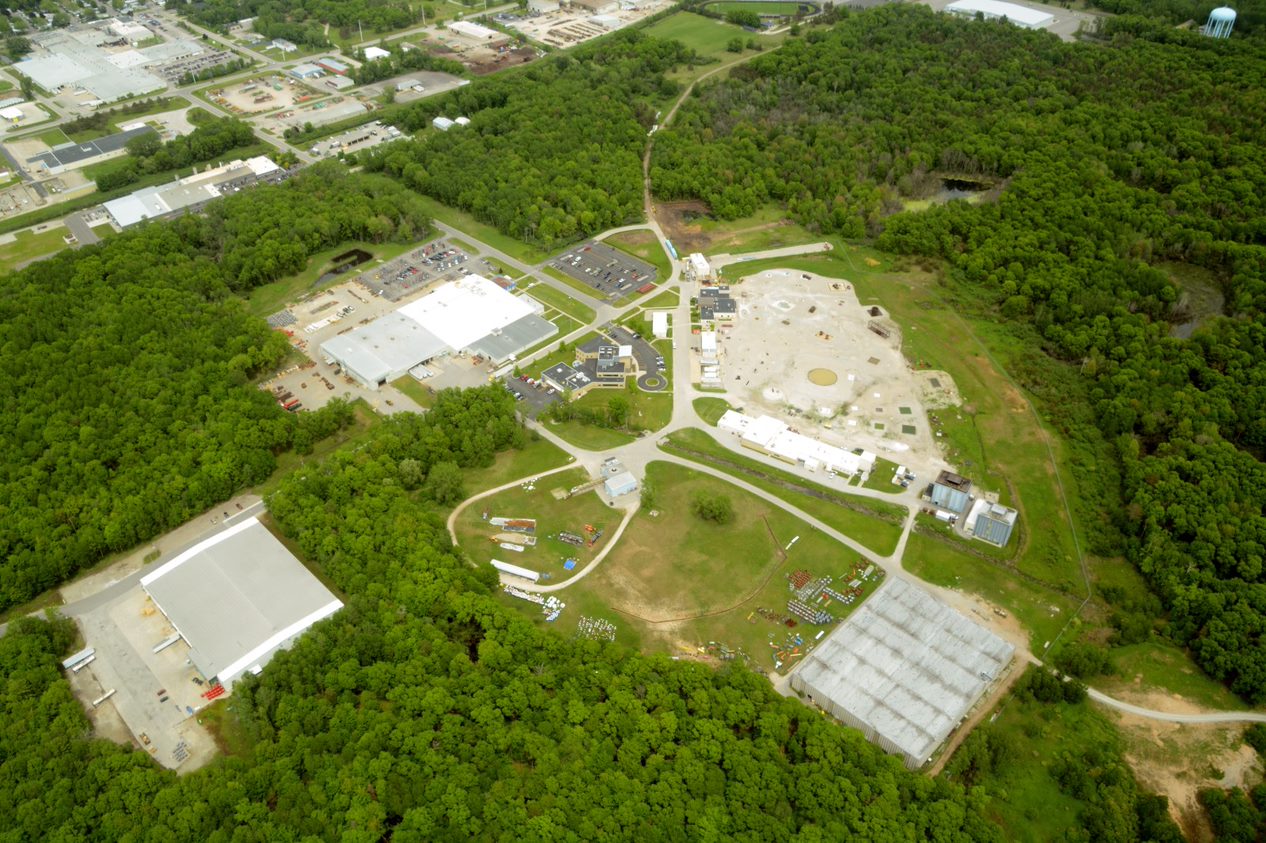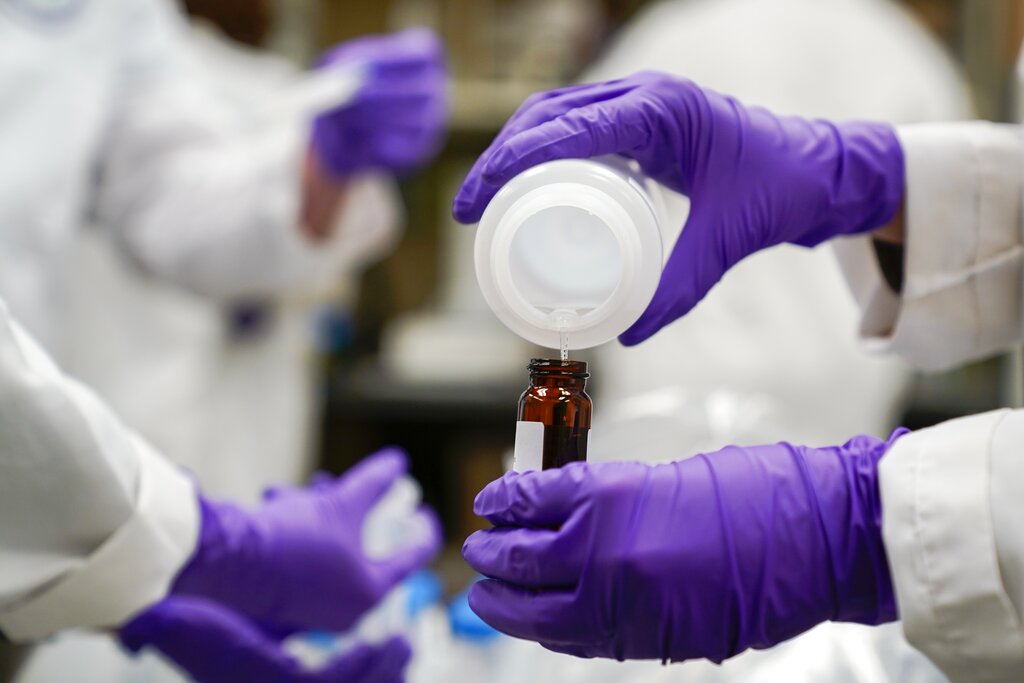Dozens of homeowners near the La Crosse airport are being offered bottled water after testing of private wells showed concerning levels of PFAS contamination. Nine wells had levels of the chemicals 50 times higher than the state’s recommended groundwater standard for the so-called “forever chemicals.”
The findings are part of well and groundwater sampling that began in October within the Town of Campbell near the La Crosse Regional Airport on French Island. The La Crosse Fire Department tested firefighting foam containing PFAS at burn pits on the site from the 1970s to the 1980s.
The results were reported Tuesday evening by the city’s environmental consultant, the OS Group, as part of an investigation into PFAS contamination at the airport. The investigation began after the Wisconsin Department of Natural Resources flagged two city wells for the presence of PFAS last year, which are no longer being used.
News with a little more humanity
WPR’s “Wisconsin Today” newsletter keeps you connected to the state you love without feeling overwhelmed. No paywall. No agenda. No corporate filter.
More than one-third of wells tested last fall — 40 of 109 private wells — showed PFAS levels above the state’s recommended groundwater standard of 20 parts per trillion. That’s roughly the equivalent of 20 drops of water in an Olympic-sized swimming pool. The city has offered $25,000 worth of bottled water to households with elevated PFAS levels until a permanent solution is in place, according to the La Crosse Tribune.
“I would like to believe that we’ve acted as quickly as possible since October to get testing done to get results back and to get safe water to those people that have exceeded that 20 parts per trillion,” said La Crosse Mayor Tim Kabat.
The highest levels recorded were around 3,200 parts per trillion, according to John Storlie, the city’s consultant with the OS Group. He said test results are still pending on 14 samples.
“Bottled water has been recommended by the (Department of Health Services) and by us to the residents for drinking, cooking purposes and brushing teeth,” said Storlie.
Curtis Hedman, a toxicologist with the state Department of Health Services, also advised residents not to use water with elevated PFAS levels to grow food.
Bottled water has been provided to 32 homes with PFAS contamination. Four homes either declined or didn’t respond to offers of bottled water, and four wells were not a source of drinking water.
Perfluoroalkyl and polyfluoroalkyl substances, commonly referred to as PFAS, have raised concerns because they don’t break down easily in the environment. The so-called forever chemicals are found in firefighting foam and everyday products. Studies have linked the chemicals to thyroid disease, reproductive health issues and kidney and testicular cancers.
The city’s consultant plans to resample around 10 wells that tested just below the state’s recommended standard. Storlie said they also plan to send letters this week to about 50 residents to conduct sampling in an expanded area around the airport.
Storlie noted the best way for residents to deal with contamination is to treat the water or connect to the La Crosse public water supply. La Crosse’s mayor said the city council will discuss next steps on Thursday and options to provide clean drinking water to those residents, including the potential for providing city water to private well owners.
Bernard Lenz, the city’s water utility manager, highlighted that the Public Service Commission would have to sign off on any agreement for the city to provide water to residents in the Town of Campbell.
The La Crosse Regional Airport is currently required to store firefighting foam containing PFAS as part of Federal Aviation Administration regulations, according to airport director Ian Turner. Turner said the airport has “all but eliminated” the foam, which would only be used in emergencies. The FAA is required to come up with an alternative to PFAS-containing foam by October of this year.
The DNR said at least three towns in Wisconsin have residents who are now receiving bottled water due to PFAS contamination including the Towns of Peshtigo, Campbell and Newton. Environmental regulators are monitoring more than 50 sites with PFAS contamination across the state.
The Peshtigo and Marinette area in northeastern Wisconsin is the focus of the state’s largest, most complex investigation into PFAS contamination stemming from a Tyco Fire Products fire training facility. Tyco’s parent company Johnson Controls International has been providing bottled water to around 130 residents since 2017.
Last week, Peshtigo residents reached a $17.5 million class action settlement with Tyco over their exposure to PFAS in drinking water. La Crosse’s mayor said he would be interested in joining residents or others to sue the manufacturers of PFAS-containing foam so people could be compensated for any losses.
Testing has also showed PFAS contamination at the Dane County Regional Airport in Madison. A report filed with regulators last month showed levels of PFOA in groundwater as high as 67,300 parts per trillion at one sampling location, which also found PFOS levels of 1,360 parts per trillion. The airport was also the site of burn pits used for firefighter training.
City leaders in Madison have emphasized that groundwater contamination at the airport isn’t tied to the source of the city’s drinking water. But, the city shut down one well after the Madison water utility found traces of the chemical in every city well, according to the Wisconsin State Journal.
Surface water sampling has also found traces of the chemicals at Mitchell International Airport in Milwaukee.
The DNR has been working to craft standards for PFAS in drinking water, surface water and groundwater. No federal standards exist for PFAS although the U.S. Environmental Protection Agency has set a health advisory level of 70 parts per trillion for PFOA and PFOS.
The DNR released its proposed plan for addressing PFAS chemicals in December, which includes a recommendation to test all public water supplies in Wisconsin.
Wisconsin Public Radio, © Copyright 2026, Board of Regents of the University of Wisconsin System and Wisconsin Educational Communications Board.







